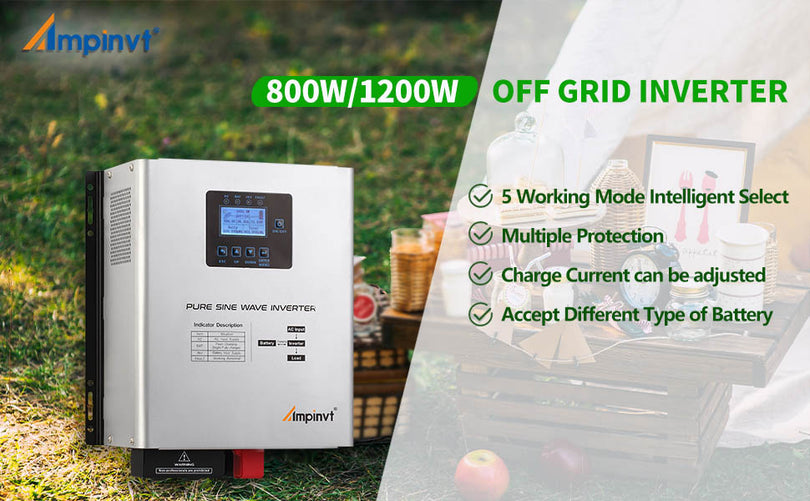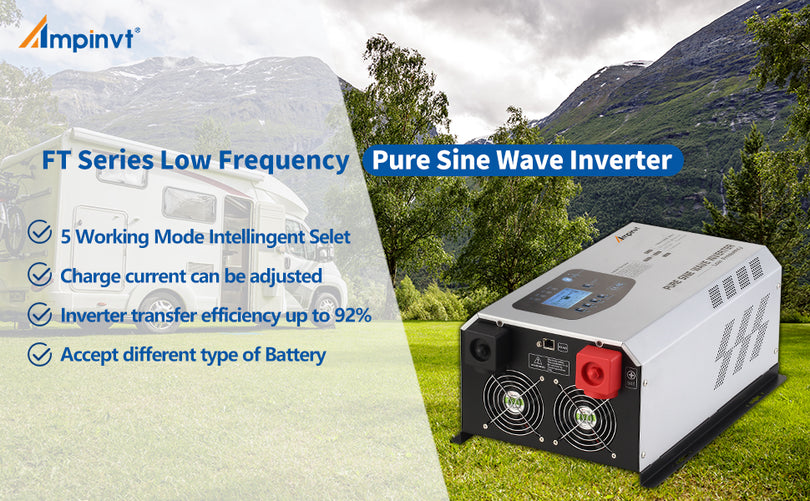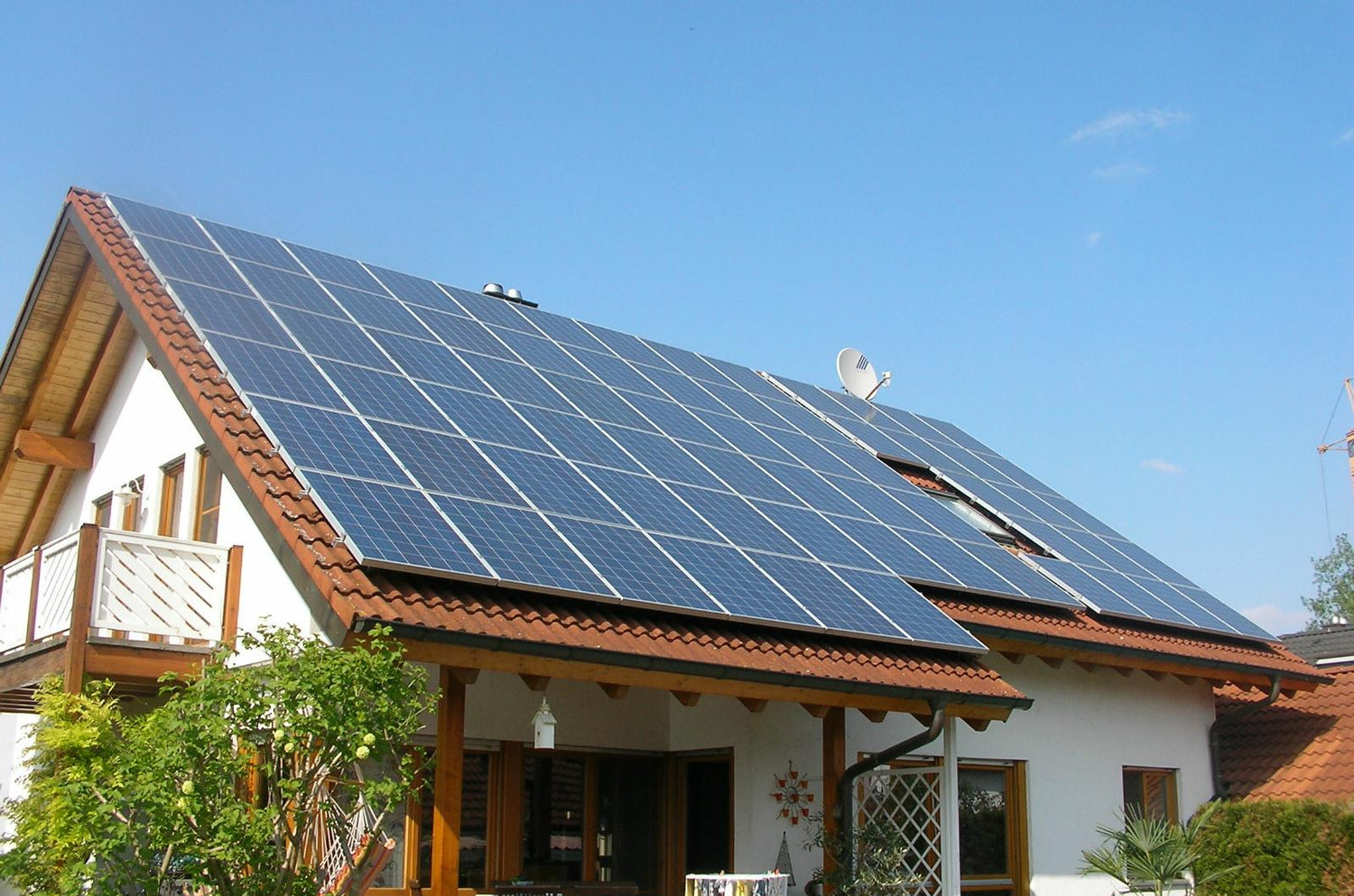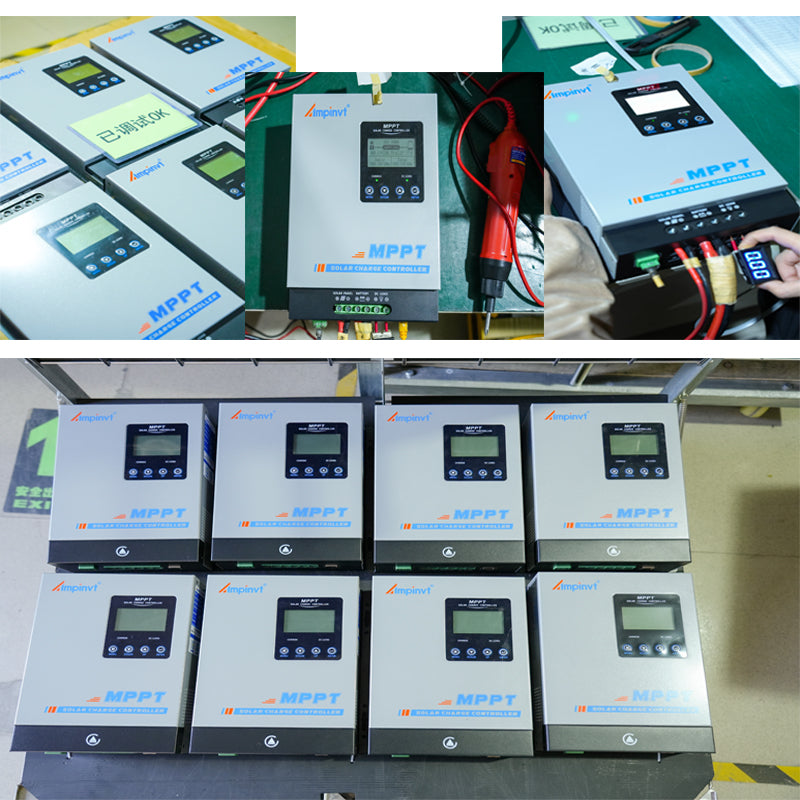For those who want to build off-grid systems or backup power systems, including solar inverter, inverter is one of the most important parts of solar system. Inverters convert DC battery power (,like 12V, 24V or 48V...) to AC power (AC, 120V/240V) that can be used to run your household items and appliances. Inverters are a necessity for people who cannot access mains power. They bring stored electricity to the place where it needs to be used and discharge it to provide power to household appliances.
There are two types of power inverters on the market: low-frequency inverters and high-frequency inverters. Whether the inverter is high-frequency or low-frequency, each design has its advantages and disadvantages.
What is the different between them?Or what advantages and disadvantages of them?
A low-frequency inverter is truly a low-frequency inverter, while a high-frequency inverter is a high-frequency inverter,they work at different frequencies.
High frequency inverters usually refer to inverters that operate at higher frequencies, such as around 3MHz, while low-frequency inverters operate at lower frequencies, such as 50Hz or 60Hz.
The advantages of high-frequency inverters include small size, light weight, and high efficiency, making them more suitable for use in the field of low-power electronic devices.However, it also has significant drawbacks, as high-frequency inverters cannot connect to full load inductive loads and have poor overload capacity.
Low frequency inverters, on the other hand, have the characteristics of high power and good stability, making them suitable for high-power equipment applications.
Low-frequency inverters are designed to handle higher power peaks for longer periods of time than high-frequency inverters.
Who should choose a low-frequency inverter?
Inverters need to be selected based on system requirements and performance. Low frequency inverters are not suitable for everyone. They are very large and much heavier than high-frequency inverters because they have a built-in transformer inside. Most suitable for those who are building off grid power systems with no obvious power restrictions. Or those that run high-power appliances and devices with motors, such as electric tools, washing machines, vacuum cleaners, and air conditioning. Low frequency inverters are also most suitable for those who want to power various kitchen appliances such as refrigerators, microwaves, dishwashers, and ovens.Maximize its efficiency.

The improvement of peak performance and stability of low-frequency inverters means that their cost is higher than that of high-frequency inverters. If your energy consumption is small and you only need to power small appliances, or if your space for placing inverters is limited, high-frequency inverters will be more suitable for you.





